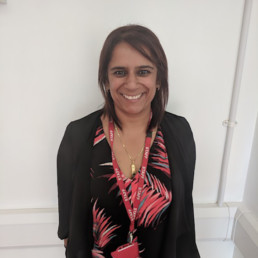
Written by Amardeep Panesar
Headteacher with two decades of experience in education
As an ethnic minority leader, many challenges and barriers do come our way. It is how you perceive them and more importantly yourself in order to be successful. I personally, do not see these as hindering barriers, but challenges that I know I/ we can overcome, depending on “how badly I want something”. A philosophy that most definitely comes from my foundation and sports participation – let your work do the talking!
I’m writing my first blog on Cultural Competency based on a fantastic opportunity given to me by Diverse Educators in particular Hannah Wilson, following the response on social media, I’ve realised just how powerful this platform really is in developing educators! So let’s do it…
Why is it important to be culturally aware of the needs of our children?
Let us first look at the statistics:
- African / African Caribbean people face more ingrained pathways into the criminal justice system as a result of greater levels of disengagement and exclusion from school (Wright, Francis and McAteer, 2015).
- Over the last five years, the number of young ethnic minority people in the UK who are long term unemployed has almost doubled, whereas for young white people it fell slightly.
- In 2014, the probability of Black African women being detained under mental health legislation in England was more than 7 times higher than for White British women.
- People from ethnic minorities are twice as likely to live in poverty compared to White people across Britain.
With these statistics against us and the young people we work with, it is crucial to be culturally competent when educating our young children. Both for adults who are from and ethnic minorities and those that are not, in order to give our children the best possible life chances in order to become successful citizens.
In order to fully support and understand, it is critical to understand self and others perceptions, which can be categorised under four main areas:
- Attitudes and beliefs towards others.
- Attitudes and beliefs towards others of the same group.
- Attitudes and beliefs towards members of different minorities and
- Attitudes and beliefs towards members of the dominant group.
As we read on, do take a moment to self reflect and and understand your own perceptions towards others, because we all have them. We are naturally hard wired to like people like ourselves, people who look like us, think like us, share similar values and visions. We need to continue to educate our staff and children on how/ why these perceptions exist and how collectively, over time, things will start to change by listening to each other. Diverse education is crucial, in all areas, especially in culturally diverse schools.
We can all share our experiences through school leadership and educating children. For me, as an ethnic minority leader, everything I have learnt so far has only empowered me to support others in our profession and to help individuals understand culture and children! Every day we learn…
The world assumes the young people of colour will fail or behave a certain way, we as educators, MUST do the opposite.

